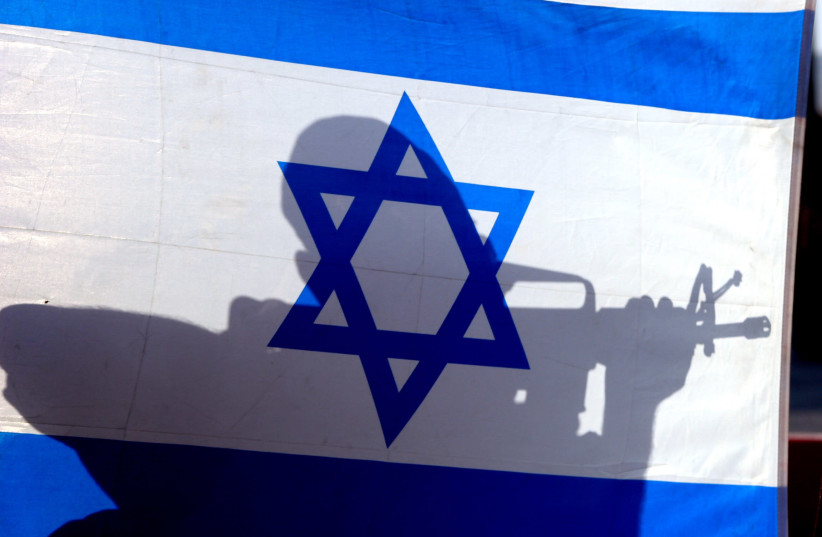The IDF will recognize IDF intelligence Capt. "T" who died in prison while under indictment for alleged security crimes in May 2021 as a fallen soldier, the IDF announced on Monday night after it publicized the results of IDF Maj.-Gen. (res.) Nitzan Alon's inquiry into the soldier's crimes.
Both T's identity and the specific crimes he was accused of remain under gag order.
T's status as being investigated and put on trial in 2020 continued for an extended period until his death in May 2021.
It is unusual for soldiers from elite intelligence units to be brought to trial, and even rarer for this to occur regarding security crimes.
Alon's inquiry stayed away from delving into the circumstances of T's death, which involved speculation about whether he committed suicide, though he was found still alive in his cell initially.

Officials said that these issues have been and are still being investigated by a mix of police and IDF legal officials.
The inquiry said that none of the developments since his death, which have been more sympathetic to T and alleged that his crimes were small and he was mistreated, changed the reality that his crimes were serious.
According to Alon, his commission recommended that in cases like this one under gag order, there must be more serious and regular oversight and some kind of improved sharing of information with the public the longer a gag order continues.
Further, he said that there is an obligation between the IDF and its soldiers, even those who commit serious crimes, to care for their mental and other special needs throughout even the prosecution and detention process.
What did previous inquiries say?
Multiple prior inquiries studied the case, but none of them had the same level of freedom to probe big-picture issues as the inquiry led by Alon.
Alon said his inquiry found that the IDF was implementing various reforms recommended by prior inquiries.
T's family has been highly critical of the IDF at different points in the process but had reacted positively when the IDF announced Alon's inquiry in November.
According to Alon, the Defense Ministry has agreed to carry out the necessary moves to alter legislation to address the criticism voiced by the inquiry.
Moreover, though Alon was buried in a civil cemetery, the IDF later recognized that he passed away while he was still within the status of being a soldier.
This recognition is viewed by the IDF as an act of "compassion" and "beyond the requirements of the law" without downplaying the severity of the crimes he was accused of.
Alon noted that he met with T's family and that his "heart goes out to them" regarding "this tragedy."
Under pressure from questions by the media which said that the inquiry had not taken any significant actions to force the IDF to reform, Alon said it was significant that the inquiry found that T had no financial motivation and was not acting ideologically as a foreign spy in carrying out his alleged crimes. Rather, T had some unusual specific emotional issues. It also seemed that Alon was very concerned to show respect to T's family, which had a long history with the defense establishment.
Alon also said that the three members of his inquiry were unanimous regarding the inquiry's findings.
In addition, Alon rejected the idea that there was a clear finding that T committed suicide, adding that the IDF legal division may conclude that the circumstances of his death may never be fully understood.
Next, Alon said that the IDF could have not recognized him as a soldier since T signed papers to eventually be released from the IDF voluntarily, but that his inquiry helped the IDF stick to the idea that he died a soldier.
An IDF Spokesman said that a significant part of recognizing T as a soldier was considering the feelings and needs of his family members.
T's parents responded to Alon's presentation calling it insufficient and demanding definitive explanations from the IDF regarding the circumstances of his death.